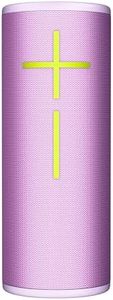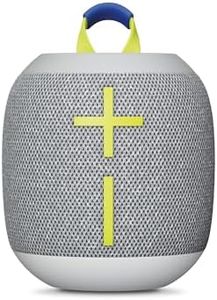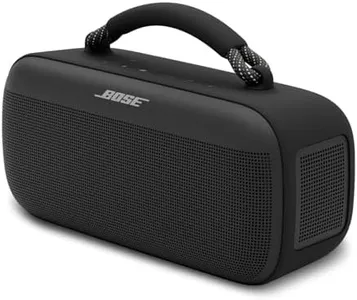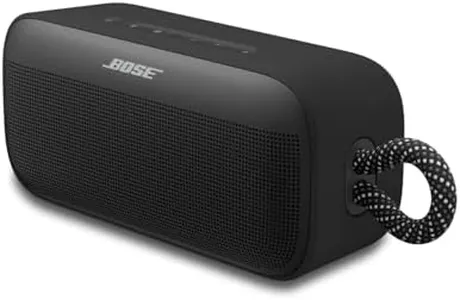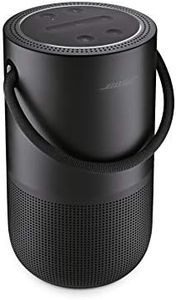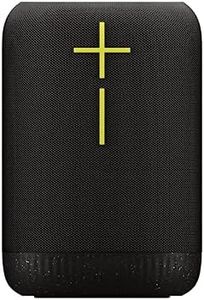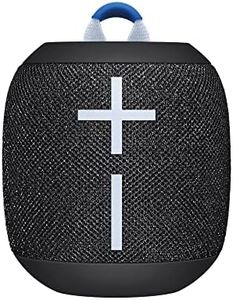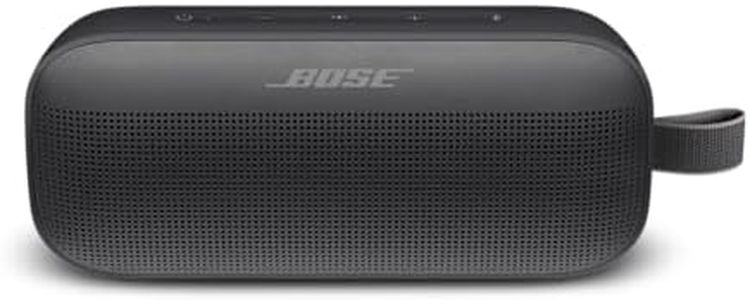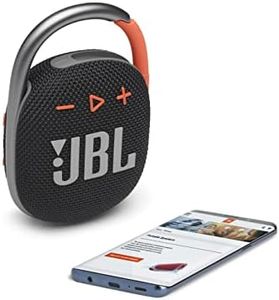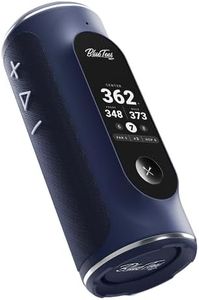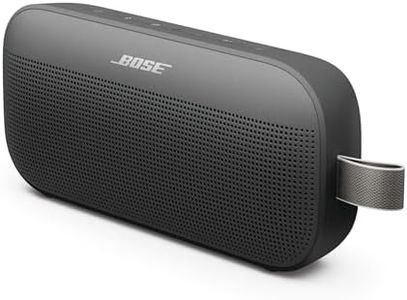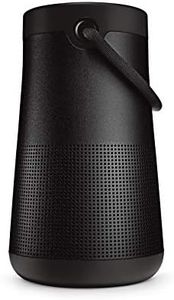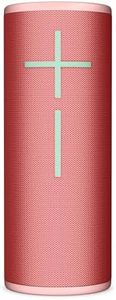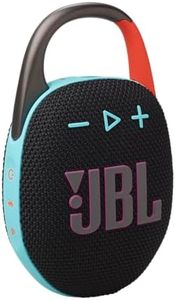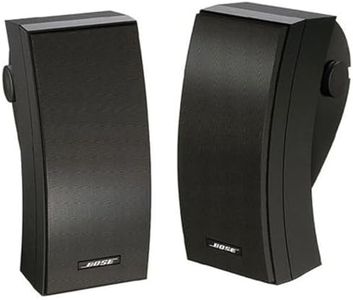We Use CookiesWe use cookies to enhance the security, performance,
functionality and for analytical and promotional activities. By continuing to browse this site you
are agreeing to our privacy policy
10 Best Golf Speakers
From leading brands and best sellers available on the web.By clicking on a link to a third party's website, log data is shared with that third party.
Buying Guide for the Best Golf Speakers
Choosing a golf speaker can enhance your time on the course by providing your favorite music or podcasts. The right model blends good sound, long battery life, and easy portability without interfering with your play. When picking a golf speaker, think about when, where, and how long you'll use it, and how important sound performance and features such as water resistance are to your experience.Sound QualitySound quality determines how clearly and loudly you hear music or spoken words from the speaker. It's important because a poor audio experience can be distracting or underwhelming, while clear, balanced sound can make your rounds much more enjoyable. Basic speakers may have tinny or distorted audio, mid-tier speakers usually provide a balanced sound that's good for both voice and music, and top-end speakers offer richer bass and clearer treble. If you mostly listen to podcasts or background music, a basic to mid-tier sound should be enough, but if you want a richer experience or have a group, aim for higher sound quality.
Battery LifeBattery life tells you how long the speaker can play music before needing a recharge. It's crucial for golfers spending several hours on the course. Entry-level models might only last a few hours, enough for a quick game. Most speakers designed for golf will last at least 8-10 hours, suitable for one to two rounds of golf, while premium options can stretch beyond 20 hours, making them ideal for all-day events or multi-day use without recharging. Decide how long you typically play and choose a battery life that comfortably covers your time on the course.
PortabilityPortability is about how easy it is to carry or mount the speaker during your game. Small and lightweight speakers are simple to clip to your golf bag or even carry in a pocket, while larger models might provide better sound but could be bulky. If you prefer to walk and keep your setup light, pick a compact design. If you generally use a cart, you can opt for a larger speaker that delivers bigger sound.
Mounting OptionsMounting options describe how a speaker attaches to your gear or vehicle. Some have built-in clips or carabiners for hanging on a bag, while others offer magnets to snap onto golf carts, or straps for secure placement. A secure mounting system prevents the speaker from falling during movement. If you always use a golf cart, a magnetic or strap-on model is usually best. For walking, look for clips or lightweight designs.
Water and Dust ResistanceThis refers to the speaker's ability to withstand splashes, rain, and dust from outdoor environments. Speakers come with ratings like IPX4, IPX6, or IP67, which indicate levels of protection. Lower levels may resist only light splashes, while higher-rated models can handle heavy rain or brief accidental submersion, as well as keep out dust and sand. If you tend to play in unpredictable weather or on dusty courses, opt for higher water and dust resistance to ensure your speaker's survival.
ConnectivityConnectivity covers how your speaker links to your phone or other audio source, usually via Bluetooth. Some speakers offer additional features such as multi-device pairing or a longer wireless range, which can be useful if you want to share control with friends or keep your phone safely tucked away. For most users, standard Bluetooth is sufficient, but if you move away from your bag often or want shared control, look for models with extended range or multi-user support.
DurabilityDurability means how well the speaker stands up to drops, bumps, and rough conditions on the golf course. More durable speakers often have rubber edges or rugged bodies to resist damage. If you tend to toss your bag around or play on rough terrain, choose a model specifically noted for being tough, otherwise, a standard speaker may be enough for careful users.
